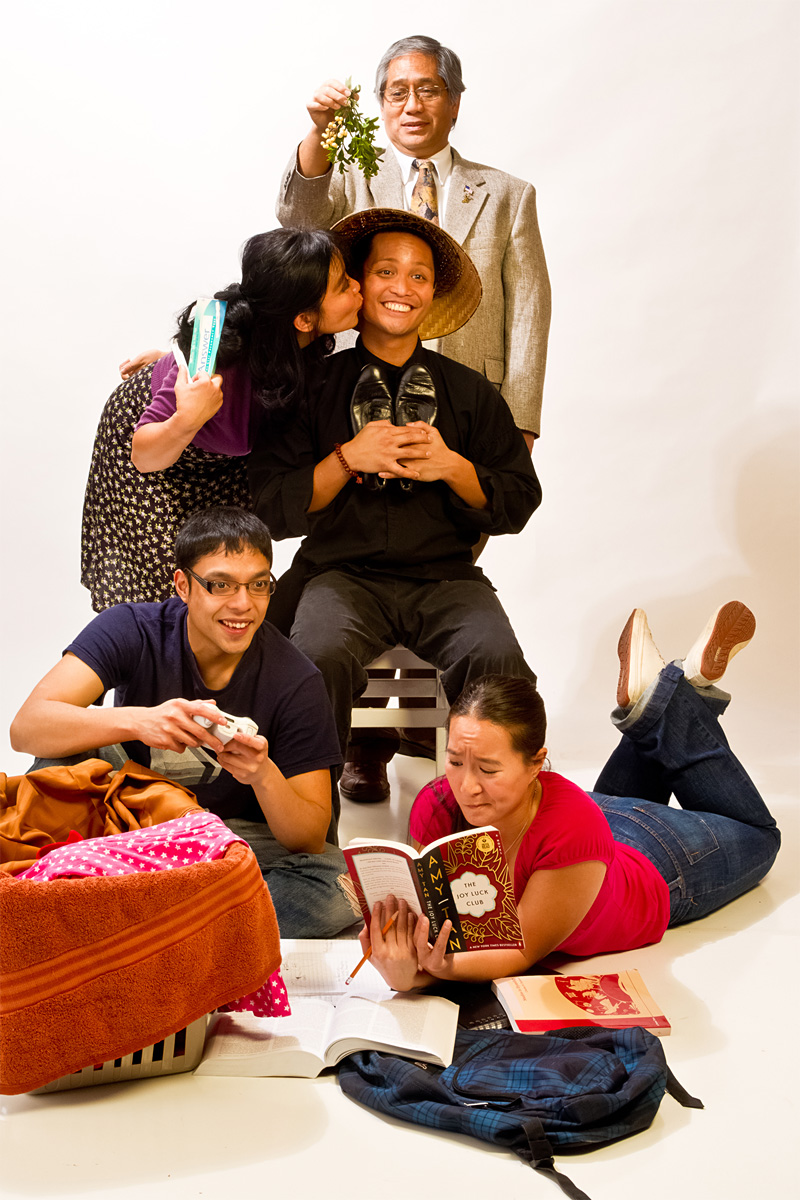“Even the greatest panda can fall from the trees.” This is not an auspicious fortune to find in your cookie, especially if you’re an ambitious, overwrought, all-destination-no-journey kind of high-school senior obsessed with going to Princeton. Oh, and you’re Chinese-American, which makes getting in, like, 50 times more impossible. But an even worse handicap is that your family is totally assimilated in Palo Alto and you’ve never suffered enough to seem like an interesting person on your admission essays.
Welcome to the predicament of Desdemona Wong (Elizabeth Daruthayan). She’s the spiny heroine of this strenuously un-PC comedy by Lauren Yee, an ’07 Yale grad who wrote it as her senior thesis, and who seems to think conflict should abrade every moment and that every stereotype needs to be boldly embraced (e.g., “Open eyes wide wide wide” for photos). The production here is from SiS, best known for their Sex in Seattle series about Asian-American dating.
The “Chinaman” of the title, played by the wonderfully natural Jose Abaoag, is an indentured servant named something like “Jaing-Jong” who appears at the kitchen table one morning. Since nobody in the family is sure how the name is spelled, they just call him J. Turns out Desdemona’s brother, so Americanized his first two names are Upton Sinclair, has imported J to do homework for him while he trains for the World of Warcraft championship in South Korea. As with all foreign visitors in theatrical settings, J’s arrival precipitates change in the lives of his hosts, especially Des’ mother Grace (Kathy Hsieh), whose forced merriness in Act 1 is almost unbearably annoying. This is change for the better, too. As the superficially happy family starts to crumble, the characters get considerably more interesting and likeable.
Most of the play is a gorp of short, eclectic scenes seemingly crafted to allow for commercial breaks and/or avoid big buildups of tension. When the family orders Chinese takeout in honor of their guest, their creative but inept attempts to operate chopsticks get big laughs; then Grace offers forks, three hands go up, and…scene. Some of the sitcommy tropes are a hoot: As each family member develops specific “uses” for J, they vie for the whistle he answers to like teenagers angling for the family car keys. Meanwhile clueless dad Ed (Stan Asis) thinks every Asian, including Kristi Yamaguchi, is Chinese. Dozens of themes pass by like billboards, including ethnicity, genealogy, life purpose, outsourcing, international labor economics, the arts, higher education, parallel reality games, etc.; although none are explored in any depth, they provide the illusion of a mental workout.
Whereas a sort of Brownian-motion frenzy dominates the overstuffed first act, the second feels almost like a different play. College application sent, the family visits what they now think is the land of their ancestors, and Desdemona is partially subdued on Coronas. For the first time, this shrill brat has the time (and permission from director Desdemona Chiang) to breathe—indeed, to wallow—in some newly discovered personal realities with much bigger implications than Princeton. Watching Daruthayan’s lonely, anguished efforts to remove a reviled bracelet almost reminded me of Oedipus gouging out his eyes. Assets and tragedies are sometimes found in the same box.








